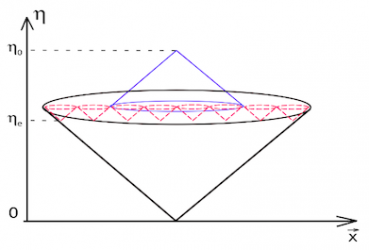
 Autour du thème des TIPE pour les concours 2020
Exposé 1
Exposé 2
Exposé 3
Exposé 4
Autour du thème des TIPE pour les concours 2020
Exposé 1
Exposé 2
Exposé 3
Exposé 4
 Autres années
Autour du thème des TIPE pour les concours 2019 - Transports
Autres années
Autour du thème des TIPE pour les concours 2019 - Transports

 Autour du thème des TIPE pour les concours 2020
Exposé 1
Exposé 2
Exposé 3
Exposé 4
Autour du thème des TIPE pour les concours 2020
Exposé 1
Exposé 2
Exposé 3
Exposé 4
 Autres années
Autour du thème des TIPE pour les concours 2019 - Transports
Autres années
Autour du thème des TIPE pour les concours 2019 - Transports
Valery A. Rubakov (Institute for Nuclear Research of the Russian Academy of Sciences, Moscow ; Department of Particle Physics and Cosmology, Moscow State University) — June 11, 2015
With Big Bang nucleosynthesis theory and observations, we are confident of the theory of the early Universe at temperatures up to T of the order of 1 MeV, the corresponding age being of the order of 1 second. With the LHC, we hope to be able to go up to temperatures T of the order of 100 GeV and down to ages of 10-10 second. The question to be addressed in this talk is : Are we going to have a handle on even earlier epoch ?
The key issue in this regard is the theory and observational data on cosmological perturbations - inhomogeneities in the energy density and, hopefully, relic gravity waves. We take a bottom up approach, and discuss the properties of the perturbations that we already know of and will possibly uncover in the future, and on this basis try to reconstruct the earliest cosmological epoch. Even though by now we know only very basic things about the density perturbations, these unequivocally show that the conventional hot epoch was preceeded by another epoch with rather peculiar properties. The best guess is inflation, but interesting alternatives to inflation are not ruled out for the time being. One of these is (pseudo-)conformal Universe. It is likely that future observations will discriminate between various hypotheses about the earliest Universe.
Biography :
Valery A. Rubakov is a chief scientist at the Institute for Nuclear Research of the Russian Academy of Sciences, in Moscow, a Physics Faculty of the Moscow State University, and the Head of the Department of Particle Physics and Cosmology. He obtained many prizes such as the Gold medal and Prize of the Russian Academy of Sciences for Junior Scientists, the A.A. Friedmann Prize of the Russian Academy of Sciences, the I.Ya. Pomeranchuk Prize, the Solvay Chair in Physics at the International Solvay Institutes, Brussels, and the Julius Wess Prize awarded by Karlsruhe Institute of Technology. He is a member of the Russian Academy of Sciences.
You can also watch this video on the multimedia site ENS : savoirs.ens.fr
 RECRUTEMENT
RECRUTEMENT ACCES DIRECT
ACCES DIRECT